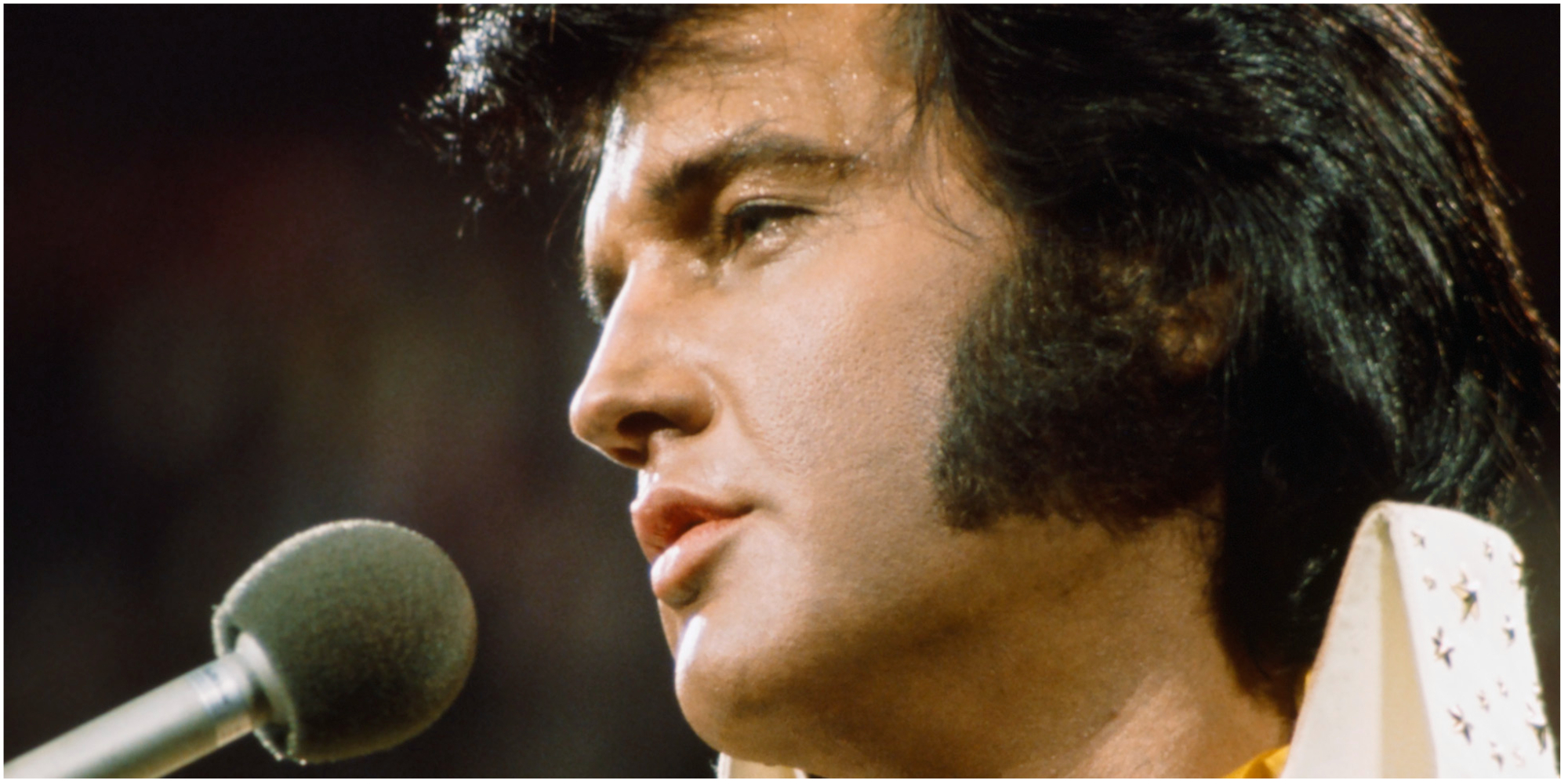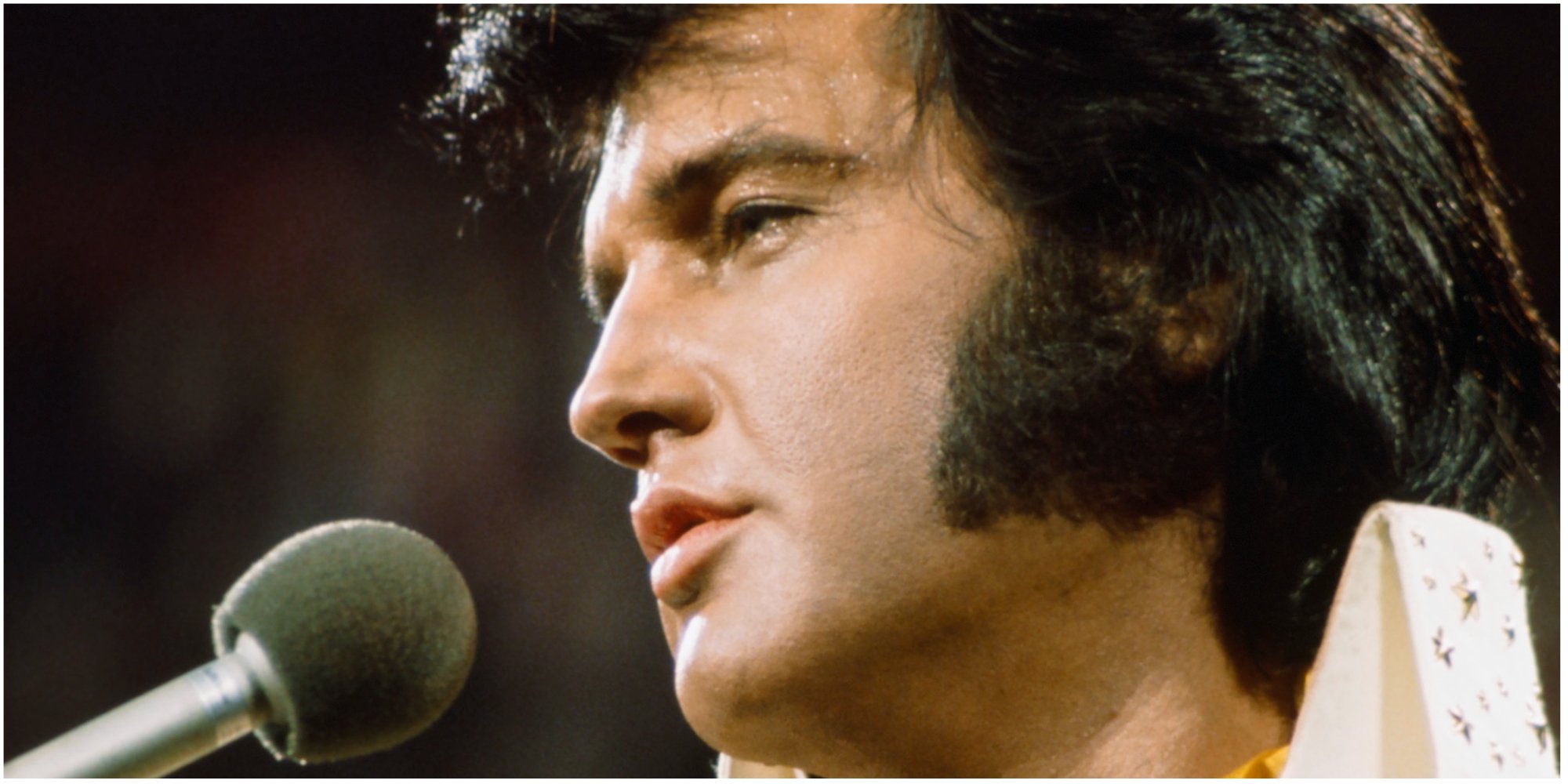
Elvis Presley: The Phrase ‘Elvis Has Left the Building’ Was Coined for This Hair-Raising Reason
One of the many great legacies Elvis Presley left was his dynamic concert exits. The phrase “Elvis has left the building” is synonymous with Presley’s stage shows. However, it has also taken on a more general meaning, referring to the end of an event or Presley’s untimely death. What was the hair-raising reason for the phrase, and what made it take on an iconic stature in Presley lore?

In two years, Presley went from an unknown performer to an international sensation
In 1954, Elvis began his singing career with the legendary Sun Records recording label in Memphis, TN.
Subsequently, it wasn’t until late 1955, that Sun sold Presley’s recording contract to RCA Victor. By 1956 Elvis Presley was a music superstar.
Presley’s debut single, “That’s All Right Mama,” recorded on July 5, 1954, pairs with “Blue Moon of Kentucky” as its B-side.
Consequently, Presley tried to score a spot on the Grand Ole Opry.
However, The Louisiana Hayride, the Opry’s chief rival, snatched him up and Presley soon became its featured entertainer.
The first time the phrase ‘Elvis Presley has left the building’ is said
On July 18, 1953 ELVIS PRESLEY walked into Sun Records for the first time to record a demo. After paying $3.98, Elvis walked our with a two side demo of "My Happiness" and "That's When Your Heartaches Begin." ? Listen to "Elvis At Sun" here: https://t.co/CloeqgVZgS pic.twitter.com/BdOIGYAeYj
— Sun Records (@sunrecords) July 18, 2022
The website 973 the Dawg reported Presley created a frenzy during his Louisiana Hayride spots.
The 1998 book Elvis, Hank, and me: Making Musical History on the Louisiana Hayride by Horace Logan and Bill Sloan spoke of the iconic catchphrase.
Firstly, Presley was in the middle of a lineup of performers on the fairgrounds of the Louisiana State Fair.
Therefore, Logan told the crowd to quiet down after Presley’s performance.
“All right, all right, Elvis has left the building. I’ve told you straight up to this point. You know that. He left the building and the stage and went out back with the policemen.”
The Elvis Presley phrase remains an iconic part of the singer’s lore
Nonetheless, the term continued to be linked to the King of Rock and Roll.
Additionally, announcer Al Dvorin used the phrase to close Presley’s concert performances in the 1970s.
Furthermore, the live record Elvis as Recorded at Madison Square Garden included a track of Dvorin saying the term reported Nerdist.


